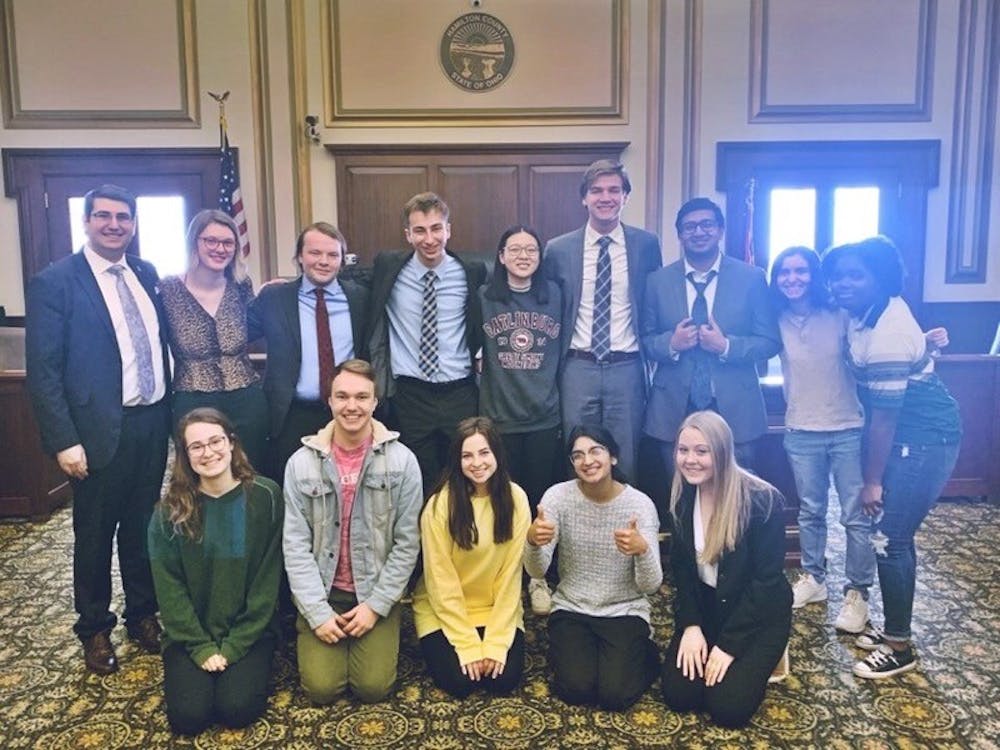Some IU student organizations have had a decrease in membership or engagement this year, likely due to the COVID-19 pandemic causing many events to move online.
The Indiana Daily Student talked to three campus organizations that have lost in-person interaction and in some cases, travel opportunities.
Waters Armstrong is the president of Mock Trial at IU, a group that helps student understand law practice through competative trial simulations. He said the group would normally travel all over the country, going to competitions at other universities to present mock cases as a team. Travel would usually be three to four hours with four to five people in the car, Armstrong said.
Competitions now occur over Zoom, so Armstrong said it has not been difficult to adhere to state COVID-19 guidelines. The format has brought some other challenges, though.
“In regard to the activity itself, a big part of it is interacting with the judges or interacting with your teammates in person,” he said. “It’s a lot easier to see what someone is thinking when you’re actually sitting in front of them.”
Armstrong said it has made the activity and cohesion as a team harder, though he said every other university is dealing with the same struggle. The group has been able to have in-person events for individual teams since teams consist of about eight to 10 people.
“So far, of course, I have very high hopes for us,” Armstrong said. “I think we’ve been adjusting very well to the medium, but we really won’t tell until we keep going to more tournaments and see what the results are.”
Armstrong said a few members from last year left because of the online format, but the group recruited a few people this year. The group went from around 40 to 44 competitors last year to 39 this year, he said.
ICAN Service Dogs at IU, a student organization partnered with the Indiana Canine Assistant Network, has also suffered the loss of some in-person communication, membership director Kaitlyn Savage said.
ICAN at IU helps educate the community about service dogs and supports and volunteers with ICAN in Indianapolis. ICAN is an organization that assigns service dogs to people with disabilities after they’ve been trained by incarcerated people. This provides a way to help inmates reintegrate into society. Some members of ICAN at IU apply to train service dogs as well.
Savage said ICAN at IU has about 150 active members, so meetings are hosted every other week over Zoom. The group received about 30 to 50 new members but the engagement is still lower than past years, Savage said. She said she suspects it is due to the decrease of students in Bloomington and the lack of on-campus events.
Because of COVID-19 restrictions, some dogs were not allowed to go in and out of prisons, Savage said. Dogs had to adjust to a new environment they had not been in for a long period of time. Some members of ICAN at IU could take dogs to class, but there are few in-person classes to go to, she said.
Sophia Caldwell, president of Best Buddies at IU, said COVID-19 has also prevented Best Buddies from meeting in person. Best Buddies at IU helps IU students and people with intellectual and developmental disabilities in the local community develop friendships. The organization usually pairs a student with a community member, or a buddy, Caldwell said.
The organization was restricted to having two virtual Zoom events every month this semester, and students and buddies can only meet up when following COVID-19 restrictions and if the buddy’s caretaker agrees, she said. She said the group has tried to keep Zoom events similar to last year’s in-person events, despite the different format.
The group was made up of around 100 members — including students and buddies — in previous years, Caldwell said. It is now about half that amount, many of whom are returning members, she said.
The online format can be hard, especially for buddies who live in group homes, she said. It makes communication difficult because some buddies do not have their own devices or have to borrow a staff member's device. Caldwell said the students are encouraged to find other ways to communicate, such as writing letters or emails.
“The goal for this year is just to make sure that no one in the club feels isolated during this time,” she said. “I just want to make sure that everyone feels like they have someone to talk to.”



